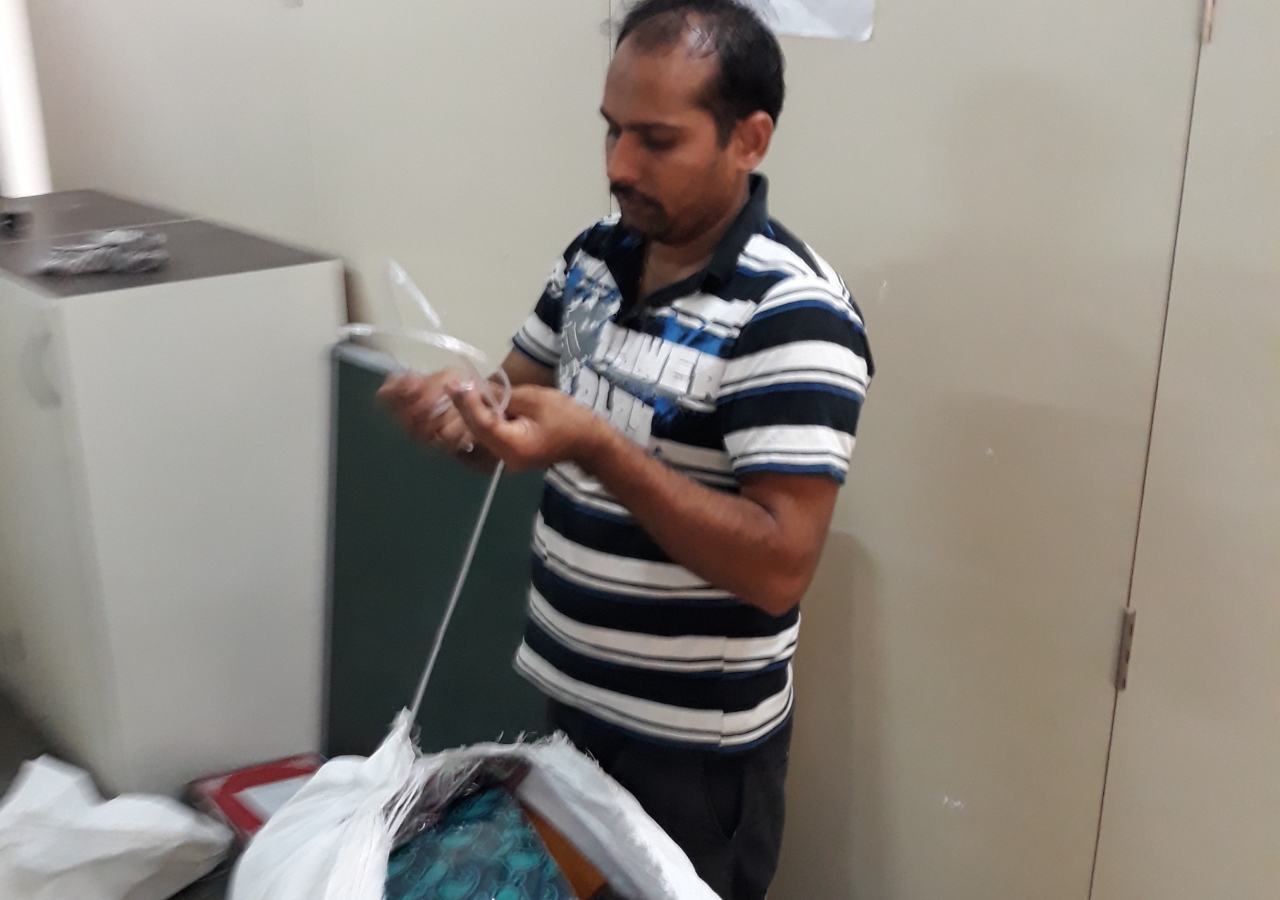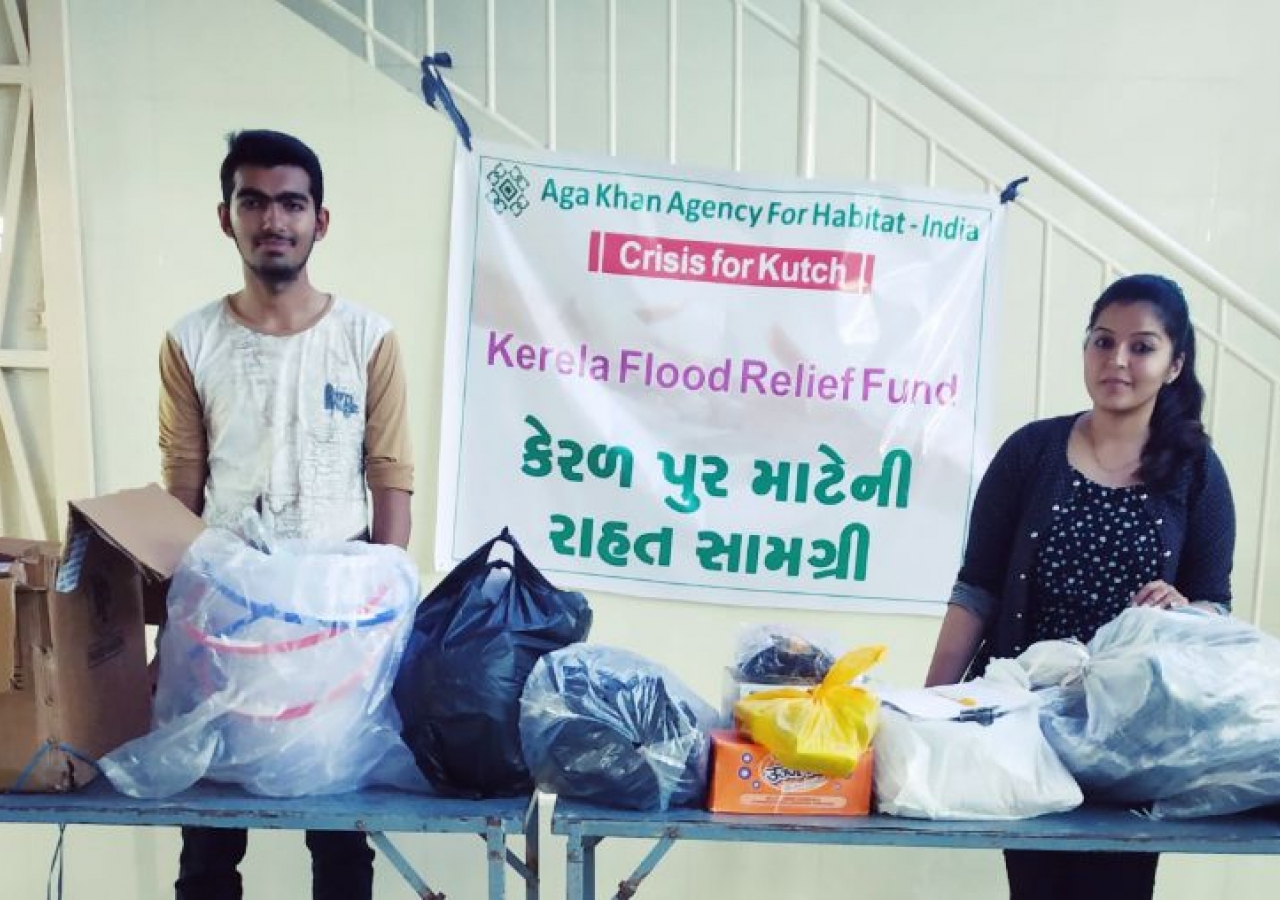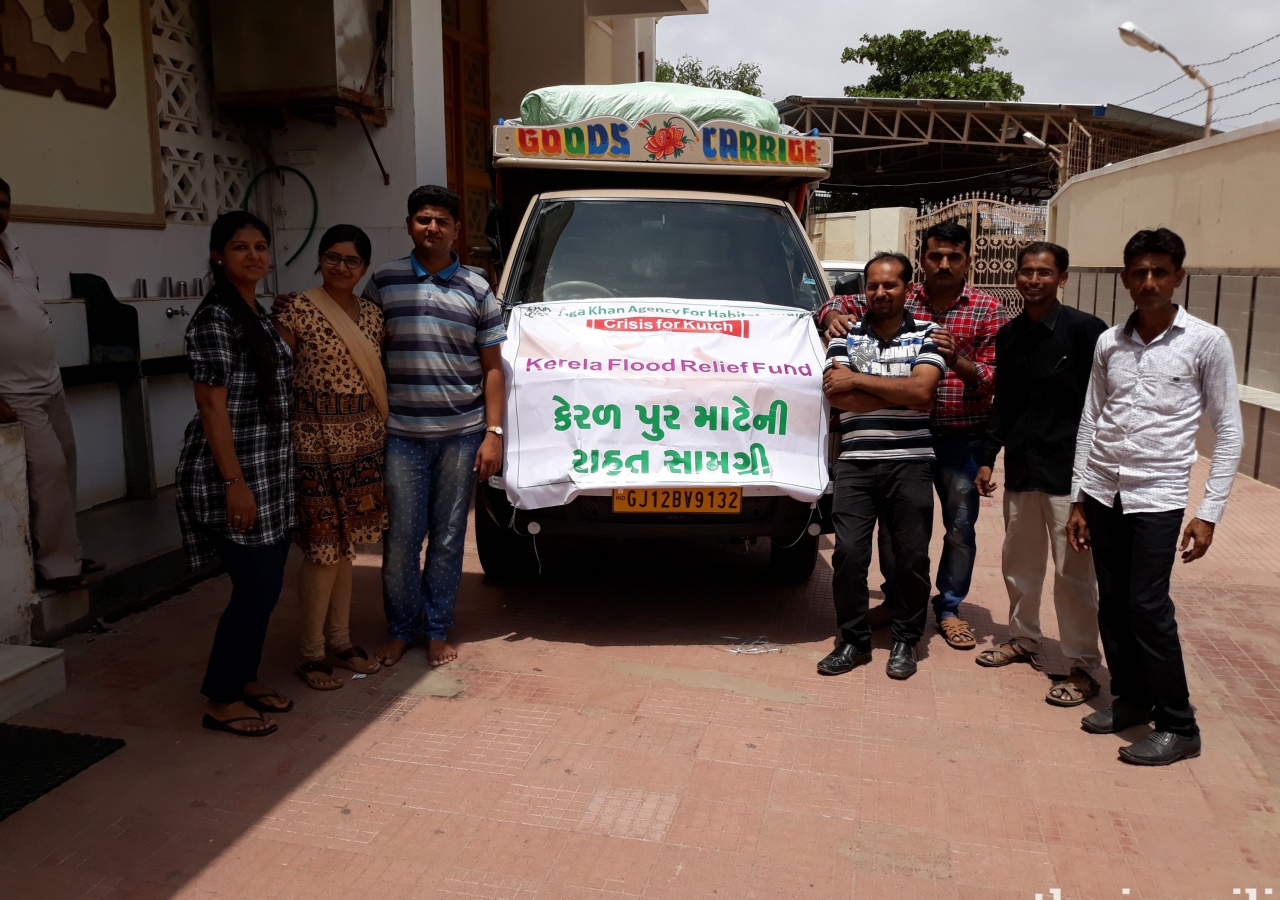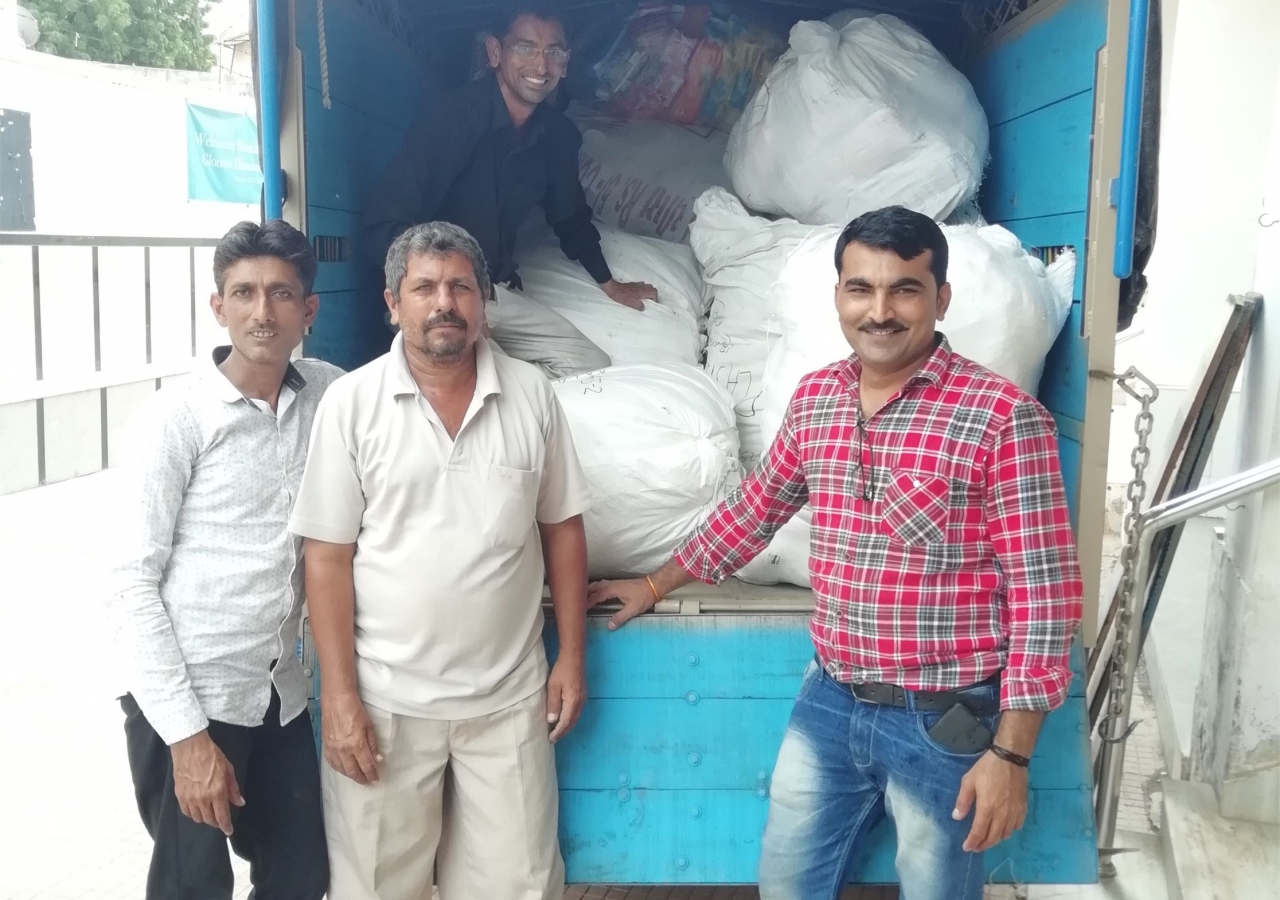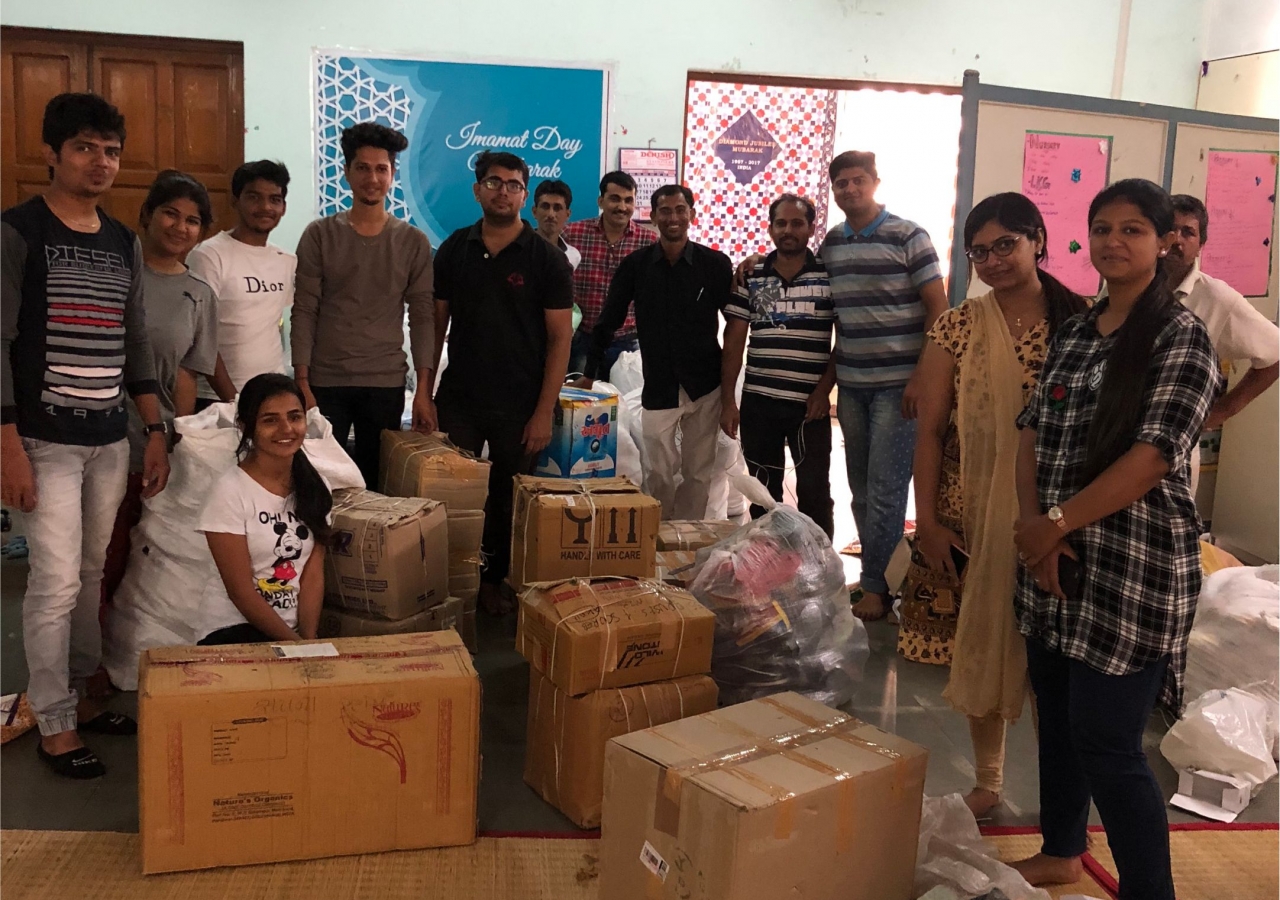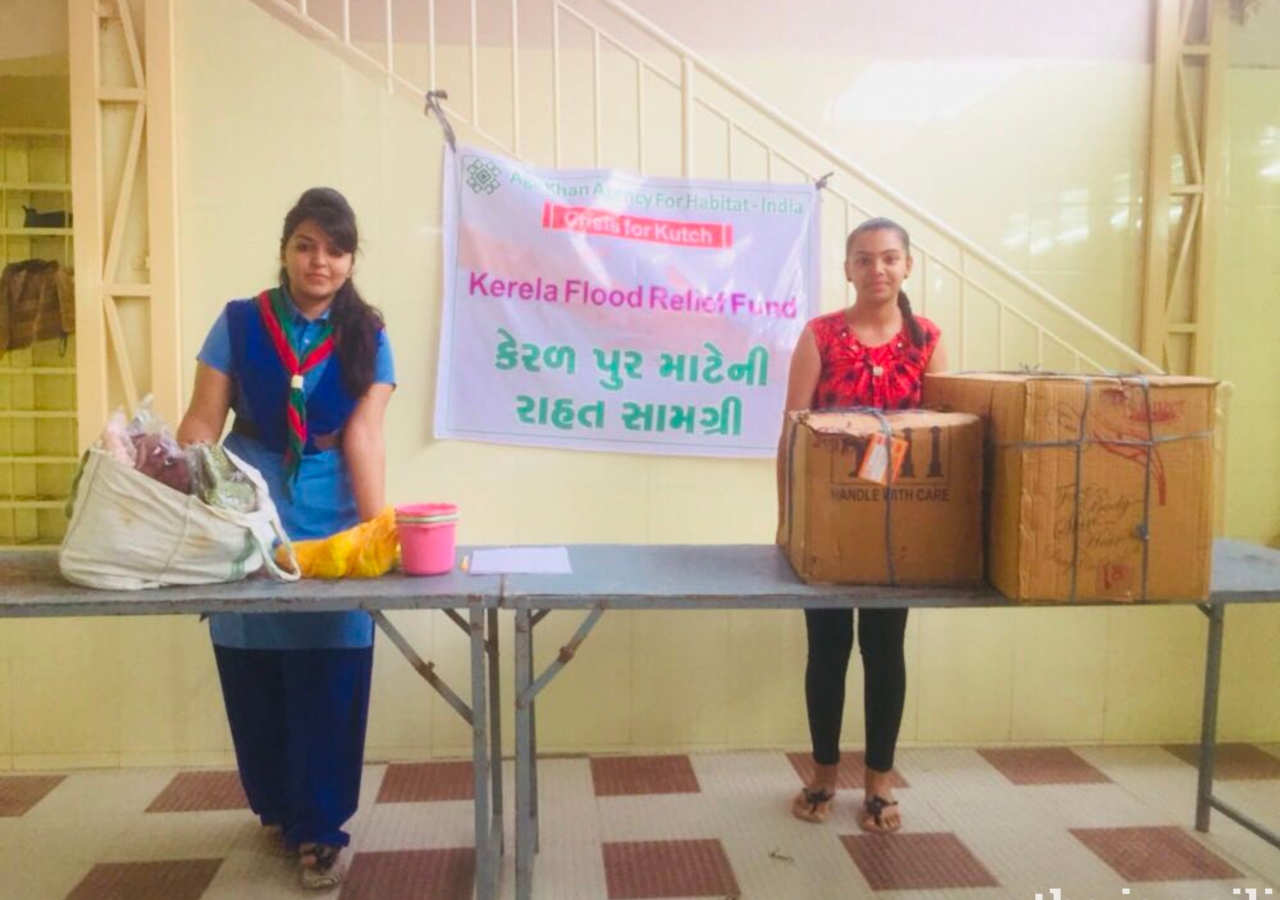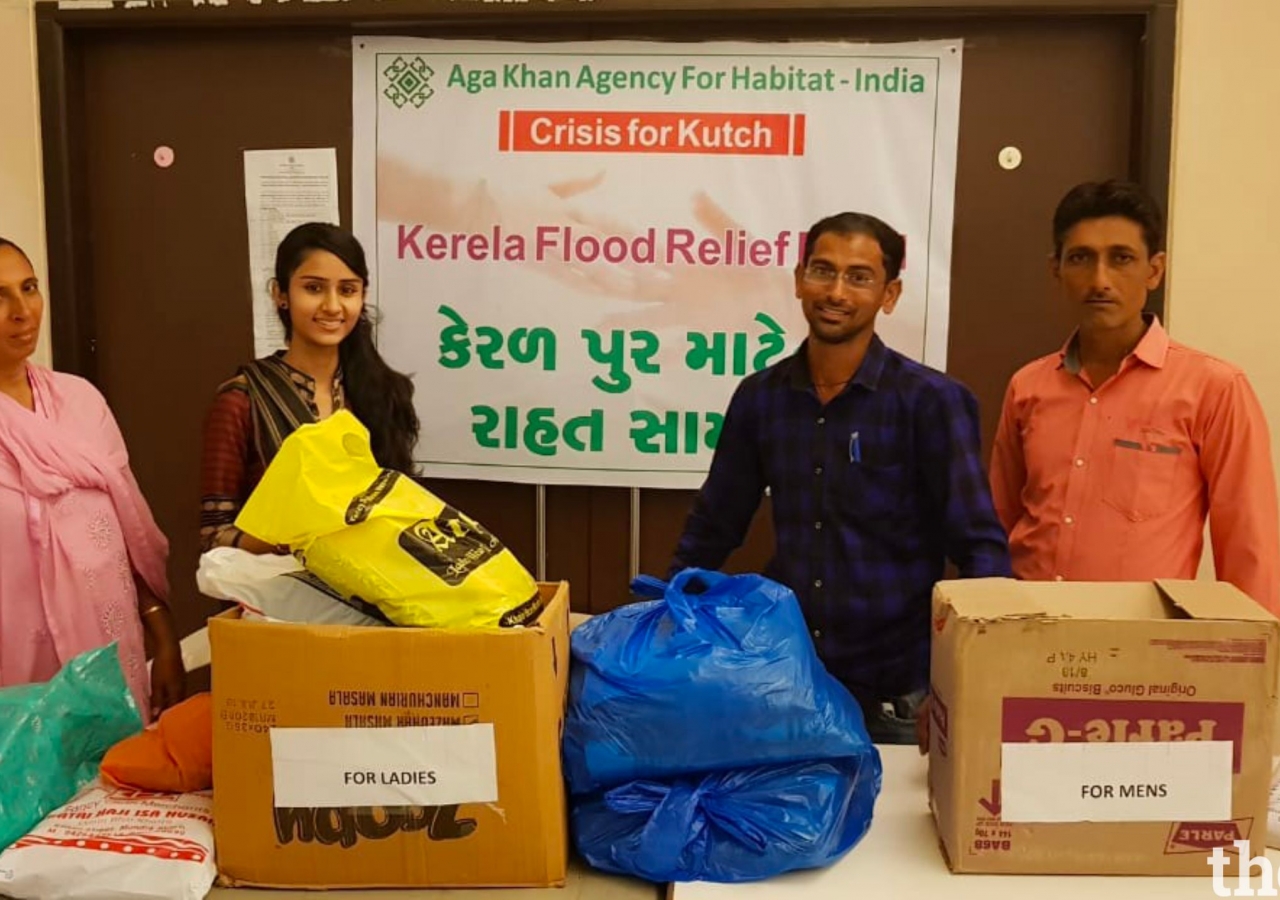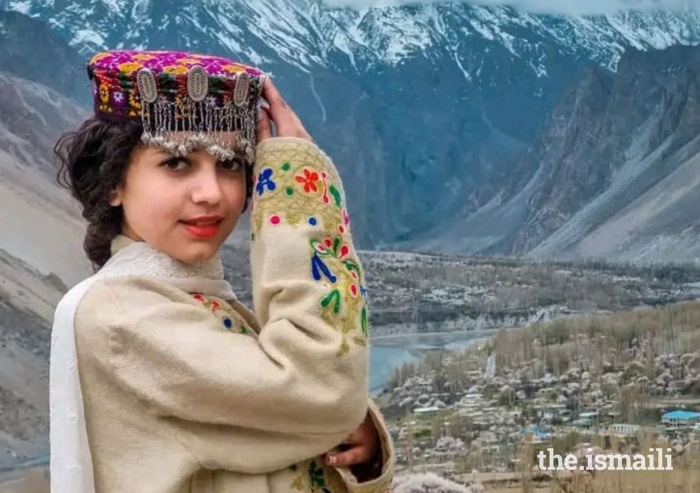Hundreds of people lost their lives and thousands were displaced with no place to call home. There was huge damage to crops, property, and livelihoods.
In its darkest hours and moments of despair and destruction, members of the Jamat from all over the country stepped forward to assist Kerala in recovering from the crisis.
Under the leadership of the Aga Khan Agency for Habitat (AKAH) and other institutions, volunteers worked to procure relief material and items that could be distributed to those in need in the aftermath of the calamity.
To address the increasing threat posed by natural disasters and climate change, the AKAH works to ensure that poor people live in physical settings that are as safe as possible from the effects of natural disasters; that residents who do live in high-risk areas are able to cope with disasters in terms of preparedness and response; and that these settings provide access to social and financial services that lead to greater opportunity and a better quality of life.
Approximately 3.5 tonnes of relief material for Kerala were collected from across the country. Water bottles, undergarments, lungis, gowns, diapers, sanitary napkins, mosquito repellents, items of first aid, hygiene kits, plates, towels, batteries, bed sheets, blankets, and sleeping mats were collected and sent to Kerala.
In Silvassa, the Ismaili Volunteer Corps., as well as a team of scouts and guides worked together going door to door to collect items required in the relief work.
Members of the Jamat in Bavla, Gujarat also helped in the post-relief operations by contributing basic food items such as rice, dal, sugar, dry snacks, as well as essential items of clothing.
Suleman Khoja, convener of Crisis Committee for Kutch, said, “When I heard that AKAH India had initiated efforts to give relief material for people of Kerala and that we needed to collect it from the Jamat, my team and I decided to make the most of it. It was a good medium to reach out and help the people of Kerala. Kutch Jamat was a great helping hand. The volunteers also did a great job. Indeed, they are the foundation of our community.”
He reminisced about the terrible destruction caused by an earthquake in Kutch in 2001. “We could feel the pain of the people in Kerala as Kutch Jamat too were victims of devastation due to the earthquake,” he said.
During this difficult time, volunteers of the India Jamat provided a spark to ignite disaster relief efforts in Kerala, assisting the local community to get back to its feet and embark on the process of reconstruction.

